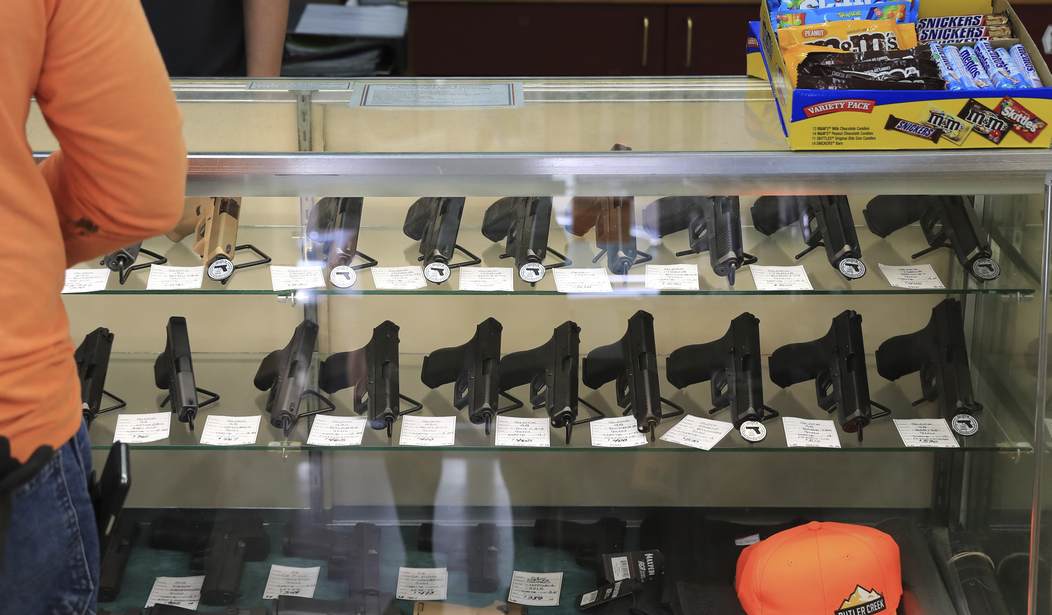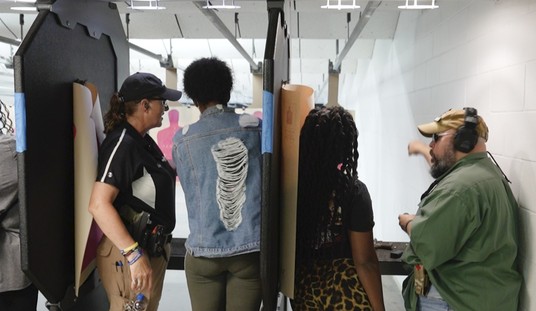On the first day that New Mexico's seven-day waiting period on gun sales took effect, the new law met its first legal challenge. Samuel Ortega and Rebecca Scott are the named plaintiffs in the suit, but the litigation is backed by NRA and the Mountain States Legal Foundation.
In their complaint, the plaintiffs note that they both tried to purchase firearms on May 15th, but after passing the NICS check were informed by gun shop employees in Albuquerque and Farmington that they could not take possession of their purchases for another week thanks to the new background check law. The law does provide an exemption to the waiting period for New Mexico residents with a valid concealed carry license, but since neither Ortega or Scott are concealed carry holders they, along with hundreds of thousands of other residents, are being subjected to a needless wait in violation of their Second Amendment rights.
The fact that the Waiting Period Act contains exceptions for (1) buyers who hold a valid federal firearms license (2) buyers who have concealed handgun licenses; (3) law enforcement agencies; (4) two law enforcement officers under certain circumstances; and (5) between immediate family members, demonstrates that there are some classes of purchasers for which New Mexico does not think a seven-day waiting period is necessary. If the Waiting Period Act were a true commercial regulation, it would not maintain exceptions based on the category of purchaser.
Since the Second Amendment presumptively protects Plaintiffs’ conduct, the State must justify the Waiting Period Act by demonstrating that it is consistent with the Nation’s historical tradition of firearm regulation.
It is impossible for the State to meet this burden because there is no historical tradition of firearms being regulated in this manner either at the time of our founding and the ratification ofthe Second Amendment, or during the Reconstruction era and the ratification of the Fourteenth Amendment.
In fact, the first waiting period law was not enacted until 1923, and involved a one-day waiting period for handgun sales in California. See Professor David B. Kopel’s Written Testimony on Colorado House Bill 23-1219, To Delay the Acquisition of Firearms. Under Bruen, analogies from the 1920s are far too late to offer a historical analogue to the issue of waiting periods.
In summary, the plain text of the Second Amendment covers Plaintiffs’ conduct. Therefore, the Waiting Period Act is presumptively unconstitutional. The State is unable to rebut this presumption because the Waiting Period Act is not consistent with the Nation’s historical tradition of firearm regulation. Therefore, New Mexico’s Waiting Period Act is unconstitutional.
We can get a sense of how New Mexico Attorney General Raul Torrez is likely to defend the law by looking to another waiting period lawsuit brought against Colorado's three-day delay. Late last year a federal judge denied Rocky Mountain Gun Owners request for an injunction, ruling that the group was unlikely to succeed in its litigation because the Second Amendment doesn't protect the activity in question, which the judge defined as "the receipt of a paid-for firearm without delay."
You have the right to keep and carry a gun, in other words, but not the right to acquire one... at least not in a timely manner. Yeah, that doesn't make much sense to me either, but in reading the judge's decision I'm convinced that he put his thumb on the scales of justice to ensure that the law would remain in place. He cited the claims of Prof. Robert Spitzer (who's become a big favorite of anti-gun AGs defending gun control laws), who "asserted that 'No Guns-R-Us outlets existed in the 1600s, 1700s, or most of the 1800s.'
He explained that “[r]apid, convenient gun sales processes did not exist in the U.S. until the end of the nineteenth century, when mass production techniques, improved technology and materials, and escalating marketing campaigns all made guns relatively cheap, prolific, reliable, and easy to get.”
And there weren't any waiting periods then either, which the judge judge decided to ignore. The judge also dismissed the findings of historian Clayton Cramer, who pointed to multiple advertisements of firearms in newspapers from 1728 to 1837.
The advertisements show that guns were being made and sold during the period addressed. But they also indicate that oftentimes a wait would be involved, for example, when guns were being imported and would arrive at irregular intervals, when firearms were being sold on a single date in the future, or a gunsmith was offering to fabricate firearms for purchasers.
Often, but not always. And those waits were a matter of circumstance, not statute.
If the Ortega case is assigned to a judge who'll actually consider the historical record and the plain text of the Second Amendment instead of simply looking for an excuse to uphold New Mexico's waiting period, I think the odds of a preliminary injunction are pretty good. But as we've already seen with other cases, judges are still misreading or simply ignoring what the Supreme Court has said about determining the constitutionality of any given gun law. I'm hopeful that the plaintiffs will find the swift injunctive relief they're requesting, but I'm not exactly confident that's gonna happen.









Join the conversation as a VIP Member